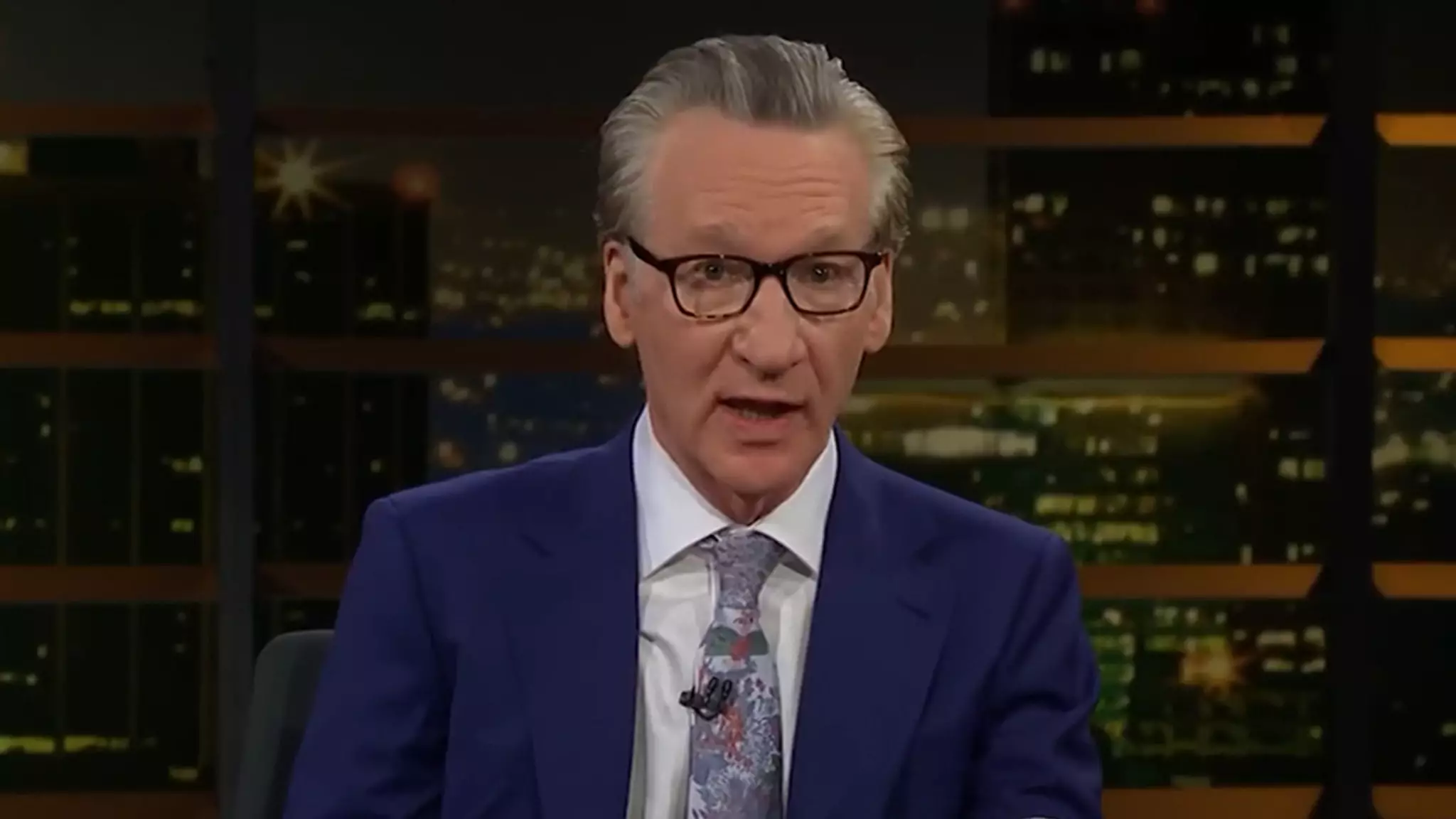In a world where political affiliations have seeped into the most personal aspects of our lives, including our romantic relationships, the implications of this pervasive divide are staggering. Comedian Bill Maher, known for his sharp insights, recently addressed a disheartening trend emerging from contemporary dating scenarios showcased in popular media, like Netflix’s “Love Is Blind.” His commentary, while humorous, holds profound significance – particularly highlighting the potential loneliness that extreme political homogeneity could impose on the younger generations. As political affiliations become paramount in choosing partners, many risk foregoing genuine connections for the sake of ideological alignment.
A Case Study from Reality Television
The season finale of “Love Is Blind” captured a disheartening moment when Sara Carton opted to walk away from her fiancé, Ben Mezzenga, over his perceived indifference to the Black Lives Matter movement. This example underscores Maher’s assertion that a purely woke stance can eclipse the essence of human companionship. Their exchange, steeped in political messaging rather than emotional resonance, raises critical questions: Are we sacrificing authentic relationships at the altar of ideology? Is being “woke” on the surface more valuable than the ability to empathize and connect with another human being, even if they hold differing views?
These modern dilemmas exemplify a troubling trend wherein political correctness supersedes personal depth, leaving participants emotionally starved for connection. While it’s essential to uphold values, an inflexible approach can lead to increased alienation, especially discernible among young adults who might find themselves narrowing their dating criteria to a painfully restrictive set of ideals.
Generational Ideals and the Dating Landscape
Maher’s critique extends beyond individual instances on reality television; it captures a larger generational sentiment. The rise of social media fueled by echo chambers often fosters a climate of intolerance towards differing perspectives. Millennial and Gen Z individuals, driving this cultural shift, might find themselves unwittingly embracing a mantra that equates love and companionship primarily with ideological agreement. The fallout? A generation ill-prepared for the complexities of adult relationships, where compromise and understanding are fundamental.
Furthermore, Maher’s notion that many may end up “lonely and loveless” resonates as young adults continue to navigate a dating landscape dictating strong alignment in values, potentially overlooking the enriching lessons that come from engaging with contrasting viewpoints. In essence, this self-imposed isolation risks eliminating the understanding that what may seem like incompatibility could often transform into enlightening dialogues.
The Call for Compassionate Engagement
In a bid for more harmonious relationships, Maher encourages a cultural shift toward dialogue rather than division. The notion that Democrats and Republicans should not only converse but explore potential romantic connections is both provocative and enlightening. By inviting engagement with opposing perspectives, we embrace the full spectrum of human experience, tearing down the wall of reticence many erect in the name of political correctness.
Ultimately, while it is vital to uphold personal beliefs, dismissing potential partners based solely on political affiliation could hamper emotional fulfillment and lead to a curious irony: seeking connections in an era where connectivity seems more accessible than ever. At what point do we weigh our values against our need for genuine human contact? Perhaps it’s time for all of us to commit to dating outside our ideological bubble—because sometimes, love might just be waiting on the other side of a difficult conversation.

